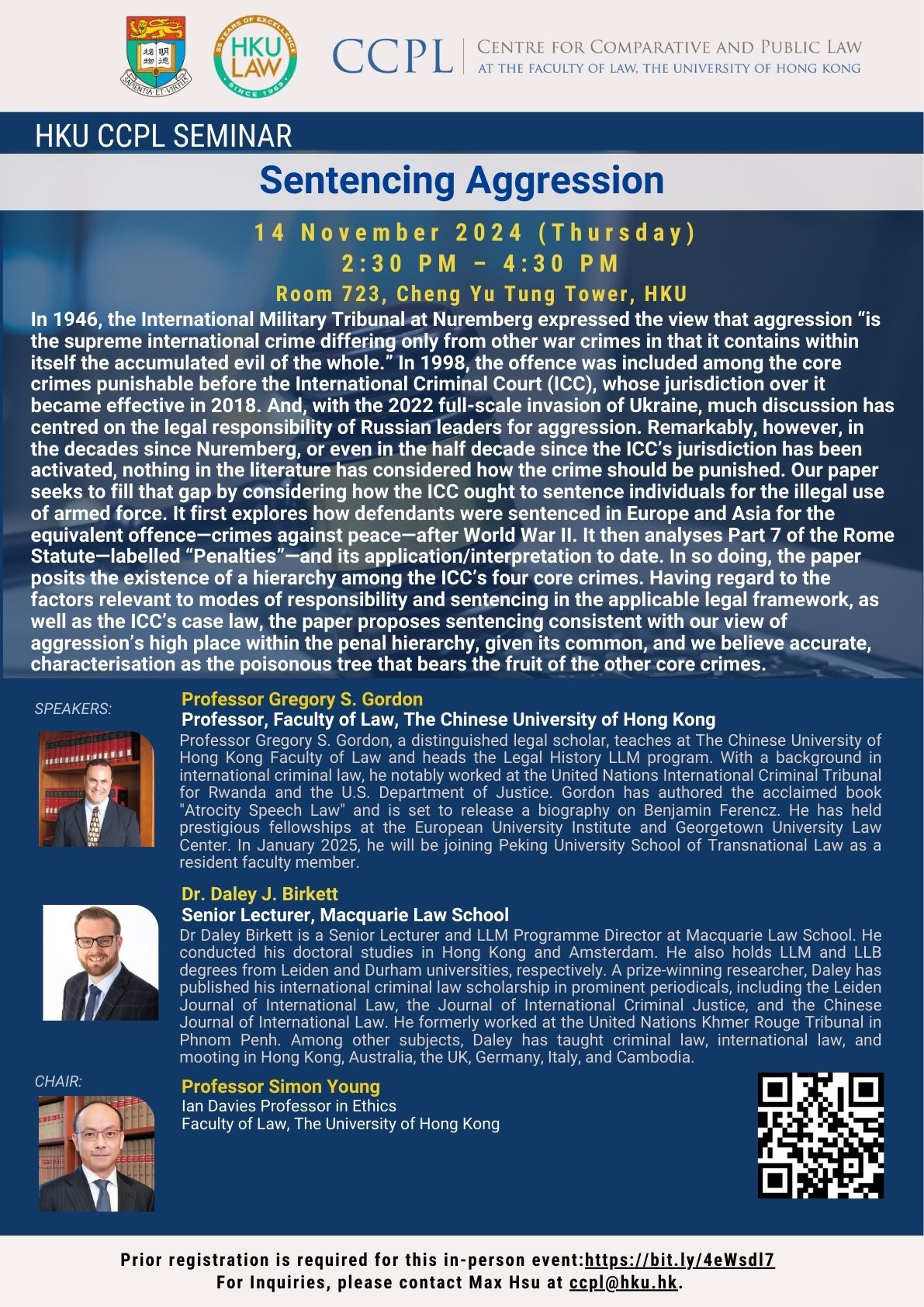
Sentencing Aggression
14 November 2024 (Thursday)
2:30 PM – 4:30 PM
Room 723, Cheng Yu Tung Tower, HKU
Speakers
Professor Gregory S. Gordon
Professor, Faculty of Law, The Chinese University of Hong Kong
Dr. Daley J. Birkett
Senior Lecturer, Macquarie Law School
Chair
Professor Simon Young
Ian Davies Professor in Ethics, Faculty of Law, The University of Hong Kong
In 1946, the International Military Tribunal at Nuremberg expressed the view that aggression “is the supreme international crime differing only from other war crimes in that it contains within itself the accumulated evil of the whole.” In 1998, the offence was included among the core crimes punishable before the International Criminal Court (ICC), whose jurisdiction over it became effective in 2018. And, with the 2022 full-scale invasion of Ukraine, much discussion has centred on the legal responsibility of Russian leaders for aggression. Remarkably, however, in the decades since Nuremberg, or even in the half decade since the ICC’s jurisdiction has been activated, nothing in the literature has considered how the crime should be punished. Our paper seeks to fill that gap by considering how the ICC ought to sentence individuals for the illegal use of armed force. It first explores how defendants were sentenced in Europe and Asia for the equivalent offence—crimes against peace—after World War II. It then analyses Part 7 of the Rome Statute—labelled “Penalties”—and its application/interpretation to date. In so doing, the paper posits the existence of a hierarchy among the ICC’s four core crimes. Having regard to the factors relevant to modes of responsibility and sentencing in the applicable legal framework, as well as the ICC’s case law, the paper proposes sentencing consistent with our view of aggression’s high place within the penal hierarchy, given its common, and we believe accurate, characterisation as the poisonous tree that bears the fruit of the other core crimes.
Prior registration is required for this in-person event: https://bit.ly/4eWsdl7
